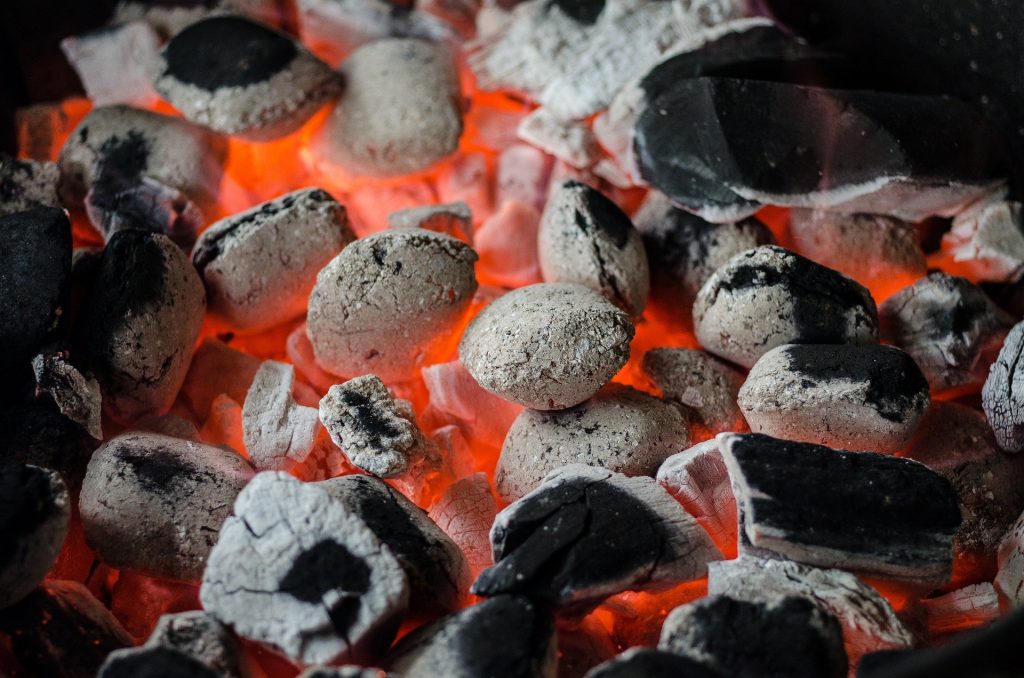My barbecuing experiences in the Netherlands

In previous posts I have dealt several times with the culinary differences between Germany and the Netherlands – and they also exist in the case of the greatest of all summer pleasures, barbecuing. However, the differences are not so much culinary, but rather ideological. The Dutch are a people of flat hierarchies, they can’t stand it when one person has a greater say than anyone else. This is true in politics as well as in daily life, and I suspect that the royal family is also so popular because their representatives de facto have quite little to say.
At barbecues in Germany, there is usually a chief griller – male or female – who is mans the grill and delegates subordinate tasks such as making potato and pasta salad and serving refreshing cold drinks to others present. Despite all the scepticism about authoritarian structures, this method has one clear advantage: depending on the talent and daily form of the person supervising the barbecue, the food is very tasty in the favourable case and still edible in the unfavourable case.
In the Netherlands, on the other hand, barbecues are more anarchistic. I’ve been to parties with about 60 people where several grills were fired up and barbecued food was offered, and it was then the guests’ responsibility to keep an eye on their own piece and turn it over or take it off the grill in time. The risk of leaving the party hungry is very high here, because it is easy to get distracted in a large group of people. I’ve been invited by nice kids to play football and had my sausage charred in the process. Little by little, a few blackened steaks accumulate on the grill, and since people are not perfect (especially when they are hungry), they often take another piece instead of their own charred one. It is also not uncommon to see very hungry guests biting into their half-cooked chicken leg ahead of time.
It is also noticeable that many meat eaters think that with vegetables or cheese on the grill, it doesn’t matter how long they lie there. Even if the condition of the vegetarian grilled food changes much to the detriment of its appearance or smell, no one suspects anything.
It is well known that the Dutch do not value authoritarian structures. But I have noticed among many people in my circle of acquaintances that they now like to make an exception when it comes to barbecuing – and adopt the German model in whole or in part, where one person has everything under control. Because one argument is convincing: no charred food is thrown away at the end!
Whether the various rituals of barbecue firing up differ from country to country is not for me to say. Barbecue fans who follow the motto “If you’re going to do it, do it right!” probably exist in Germany and the Netherlands. (Some clauses in the small print of German garden regulations at least suggest this!) I have already stormed a neighbour’s house with the excited call of “Your shed is on fire! ” and the neighbour kindly said “It’s all right! We’re just having a barbecue.” I have also witnessed the culinary habit of adding garlic to fires, and believe me, it takes your breath away.
P.S.: When we moved into our house years ago, there was a brick barbecue in the garden, but before I got around to making plans for it, my husband had already equipped the barbecue with fast-growing plants. I think that seemed like the safest way for him to avoid having to take on grilling responsibilities at home. (Fortunately, both my brother-in-law and nephew are talents on the grill, so I don’t miss a thing!)
The following photo shows our barbecue after 16 years of marriage – there is now a 1 ½ metre tall broom growing in it!

Original text: BBR
English translation: BCO
Bildquellen
- bbq-810545_1920: Rudy und Peter Skitterians / Pixabay
- 20210628_123153: BBR

